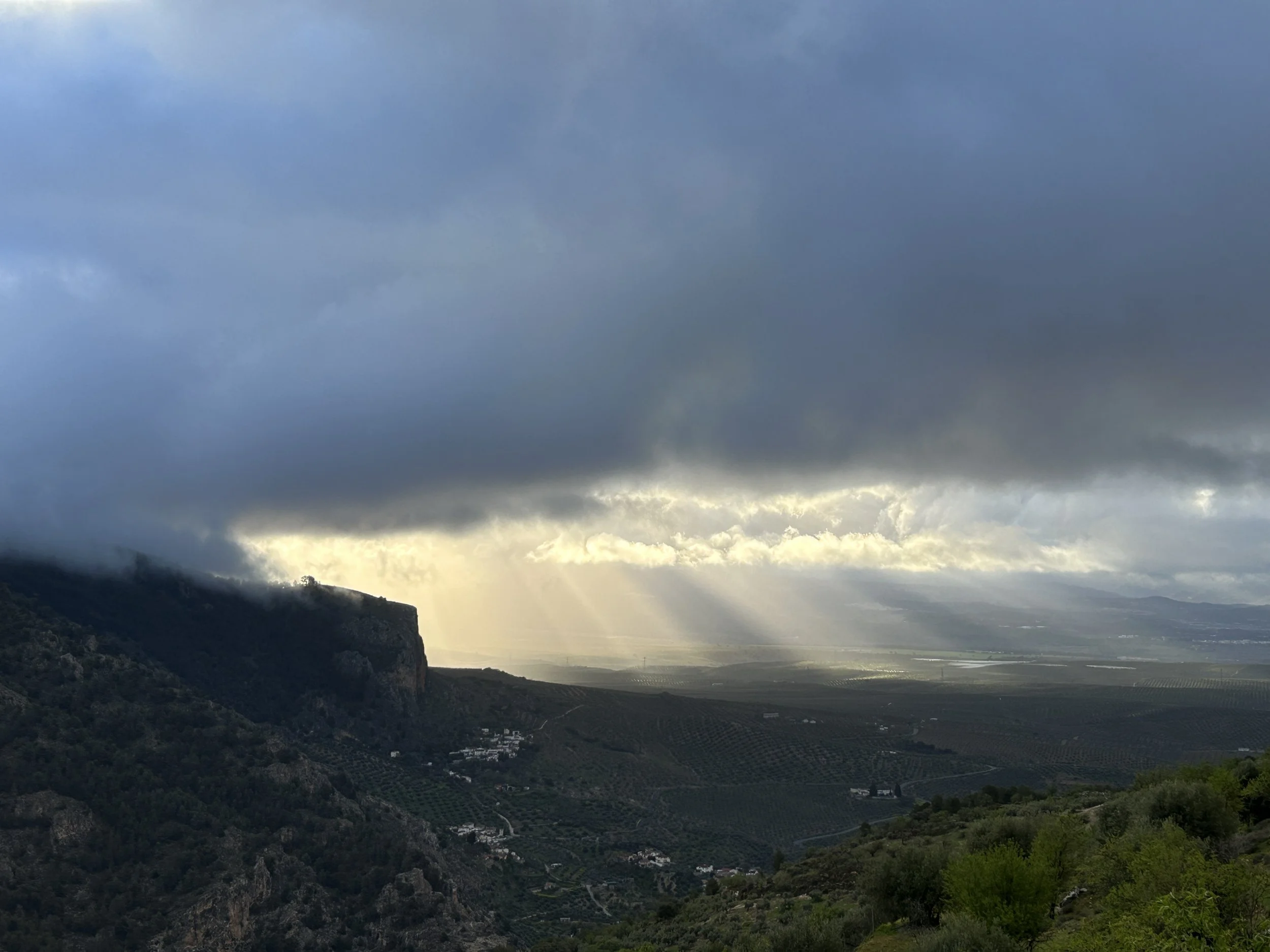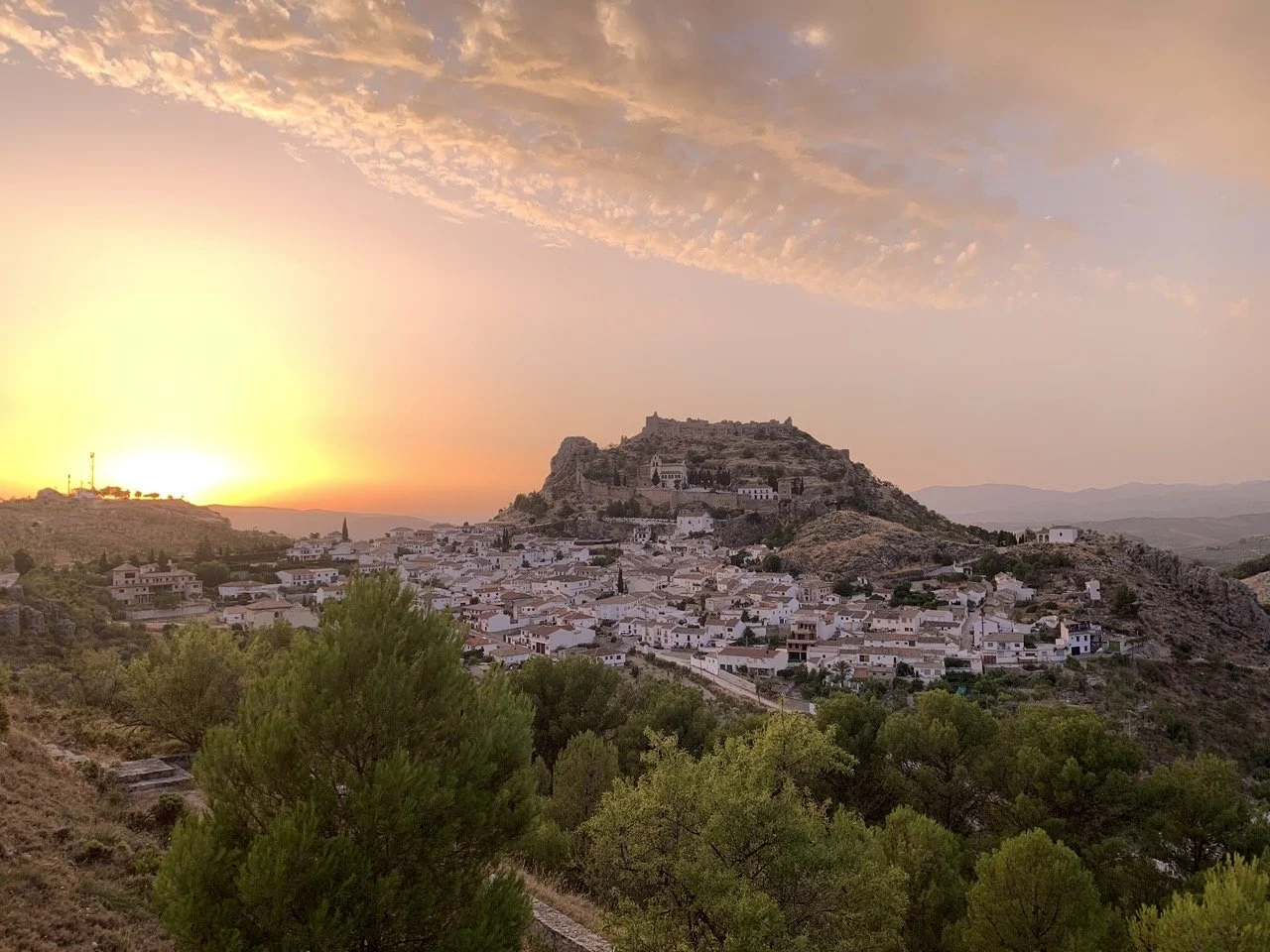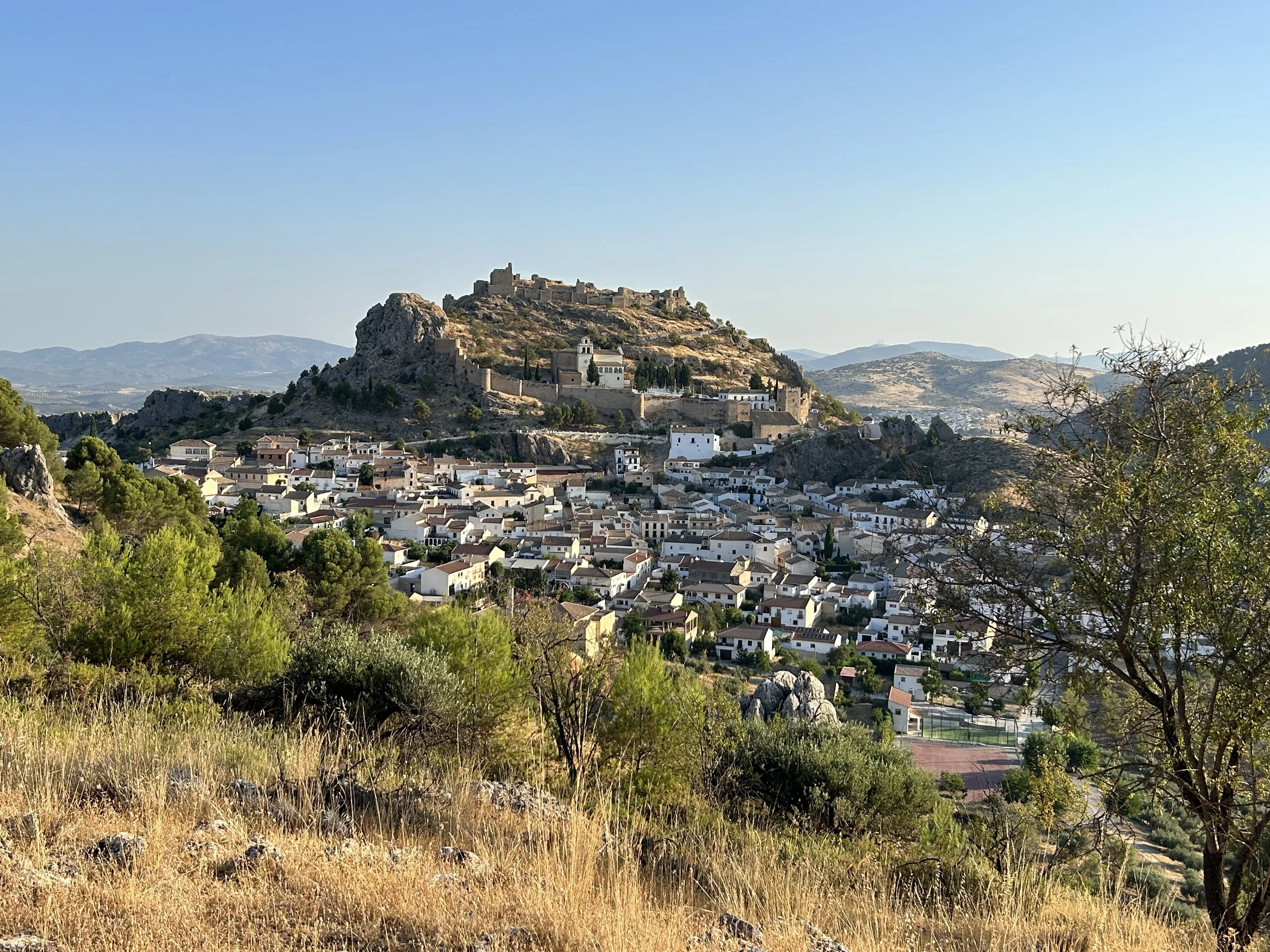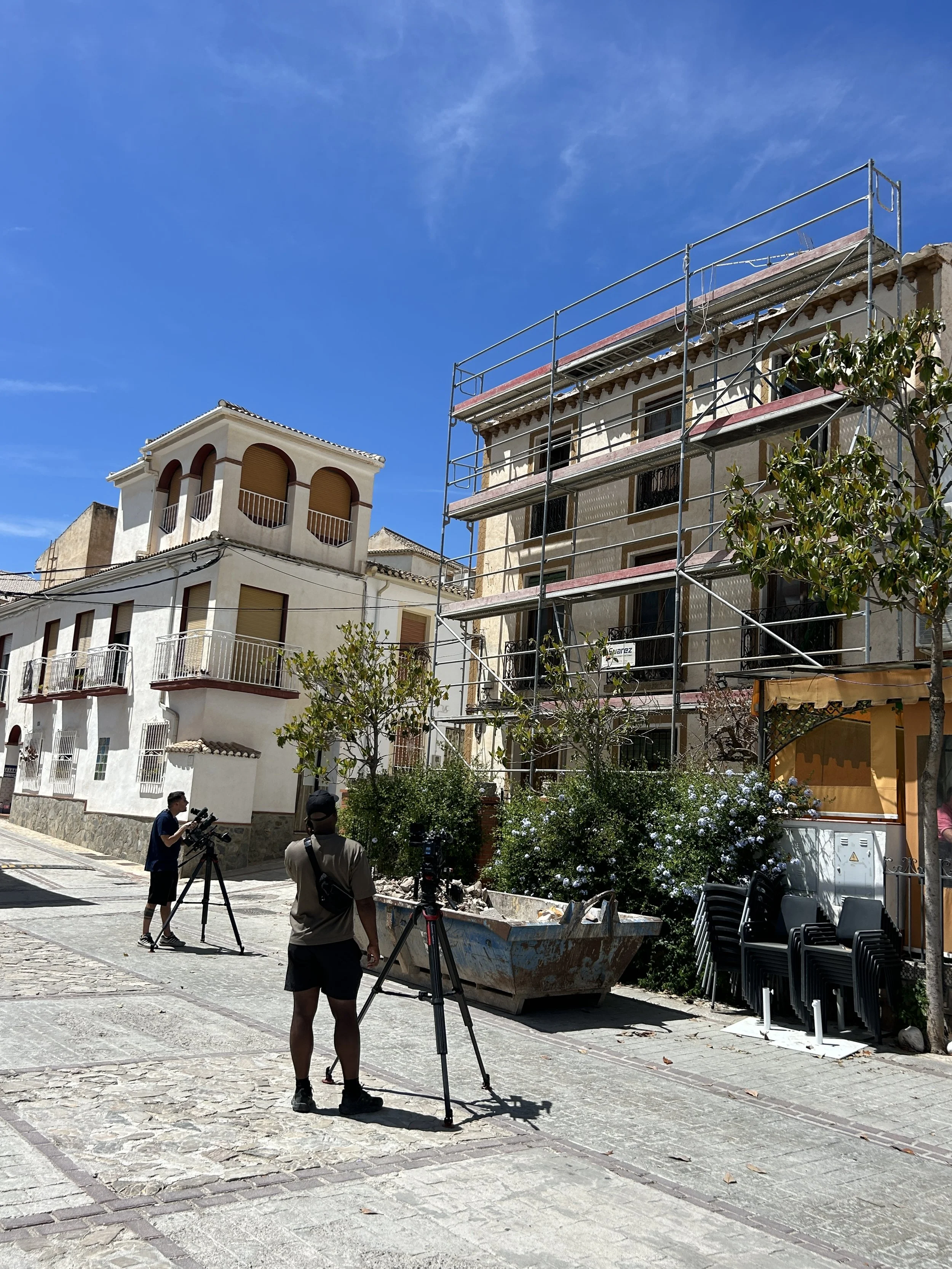Torrential Rain and Tourism
My goodness, the weather right now, here in Granada Province, is atrocious. It reminds us of the very first week of lockdown at the start of the Covid pandemic: driving rain, snow, hail, wintry temperatures and high winds. It is one of those weeks when nature decides to throw everything it has in your direction.
This week is also Semana Santa, a very important time in the religious and cultural diary in Spain; a huge amount of planning and hard work goes into the awe-inspiring processions that are so much a part of this festival. However, when the weather is as it is, these processions have to be cancelled or curtailed to avoid damage to the thrones that get ceremoniously marched through the streets. I saw a comment from one of our neighbours the other day, on Facebook, devastated that the weather had affected Semana Santa, but the responses came that the need for water was probably more important right now. Even now, water levels in many reservoirs remain low but we were encouraged to see that one of the reservoirs in the lower Sierra Nevada is now full. The river in the barranco below us is a raging torrent and the heavy rain must finally be having an impact. The recent fresh falls of snow in the Sierra Nevada will also contribute when the sun finally makes an appearance and the snow begins to melt.
We said, in a very optimistic way, last summer, after a very hot couple of months, that we were due a reset, and fingers crossed we are getting there. The rainfalls throughout March have encouraged all the wild flowers to run riot. Last year, as soon as the flowers peeped above the ground, we were hit by an unusual March heatwave and everything withered back into the soil to wait for another year. Now, the surrounding countryside looks lush and there are swathes of yellows, pinks and whites crossing the rolling landscapes. It should be a spectacular Spring.
Once again, time seems to have run off down the hill with the rainwater and we have barely had a moment to sit down and attend to our blog. Casa Higueras has been steadily booked since we opened for the year at the end of January, and our routine consists largely of washing and ironing linen, cleaning, and making beds. The life of Bed & Breakfast hosts is not for the workshy, unless you happen to have a greater number of guest rooms driving revenue that allows you to pay for help! We can’t yet afford the luxury of a cleaner on a regular basis, so chamber-maids we are.
We have made a few changes to our business activities.
We realised that the property sales side of our various ventures has a great deal of potential. Increasingly, we get asked by people in neighbouring villages if we would market their property for sale. For the past couple of years, this has been a side line that provided a useful additional income whenever we agreed the sale of a particular property. However, in this first quarter of 2024, we secured the sale of a number of houses and decided that we ought to consolidate. The result has been the rebranding of GC Property Consultants, and the redevelopment of the website and we are now Granada Village and Country. Andrew has done a beautiful job of the rebrand and redesign to coincide with a significant shift forward in our operations as property marketeers. We are loathe to use the word estate agents for a number of reasons: we are self-employed and property sales just happens to be one of our registered taxable income strands; estate agents are universally distrusted and disliked and, from our own experiences, many estate agents are also not very good. The Spanish, on the whole, are not too keen on using estate agents and would much rather use friends or friends-of-friends, and if we are able to find buyers for some of the houses then we are all happy.
Another reason for the shift in emphasis is that we are working on a very large and exciting project that has been a year in the making. We can’t say too much about this at the moment, but suffice to say that if you are thinking of investing in property in the Granada area, now would be a very good time!
Tourism is still central to everything we do here. As many of you will know, I was honoured to have been asked to be the town councillor for Tourism and Heritage last year. However, I made the difficult decision to step down just before Christmas as I simply couldn’t dedicate the time necessary to fulfil every commitment. Andrew and I have 7 businesses, and the full-time role of councillor meant that our other ventures would have suffered. It is understood by my colleagues and friends in the ayuntamiento that we will still contribute to tourism in exactly the same way as we always have done, without the need to be filling the seat on the council. Life is full of such decisions, and some are not always easy. Hopefully, though, this year will be a hugely successful one for the municipality, and Andalucia as a whole, and we can’t wait to share more news as and when we can.
A few months ago, there was a discussion about plans to provide an area for camper vans in the municipality. We get many camper vans coming to the village, and more often than not they park in any area they can find in the village, and these are not necessarily ideal camping areas. A friend and neighbour made a bit of a negative comment (quickly deleted) about the nature of this type of tourism, and that brought home the need to be very careful about the management of tourism in any area, particularly an area so steeped in history and beauty. Is any tourism acceptable, and at any cost to the local area?
When we were planning the Moclín Arte art festival last year, we were inspired by a similar festival in Genalguacil, near Ronda. Amanda Hyde, in The Telegraph (28th February 2023), wrote about initiatives that were being adopted across Spain in an attempt to halt rural depopulation, but without careful consideration, the status quo can be detrimentally shunted:
“Despite the money they bring, hostility towards visitors isn’t unheard of, with campaigns highlighting the negative impact on locals of second home owners and Airbnb.”
Our municipality, like many others, suffers from population decline as young people have to leave the villages to find work in the cities, and older residents die, leaving behind houses that their younger relatives no longer want to use. Unless young people are interested in agriculture or construction, there are very few employment opportunities in rural areas. Tourism is one way to provide an alternative, but it has to be handled sensitively and with the understanding of the people whose families have created these beautiful communities over the centuries.
We now only have one bar in Moclín and that is not always open during the week. We have a steady flow of hikers who pass through the village in Spring and Autumn, often walking the Camino Mozárabe, part of the Camino de Santiago. It reflects badly on the area when tired pilgrims arrive to find a bar closed, and with no other provider of food available. Pilgrims, having hiked the best part of 20 kms uphill, are hardly able to hop in the car to a neighbouring village, and just want to get something to eat before they go to bed! However, for a bar, it doesn’t always make financial sense to remain open all hours in the vain hope that a customer might come in for dinner. This is the conundrum: businesses need to see that there is potential for income generation before they will choose to invest; however, visitors won’t necessarily come and spend time here if the infrastructure is not available to encourage them to do so.
Breaking Bar La Plaza, Moclin
Therefore, the answer has to be a softly-softly approach that highlights the beauty of an area in order to attract visitors. This is what we attempted to do last year with Moclín Arte - to provide a 3 week event to encourage visitors to stay for longer than one day. Once visitors start to take notice, and they realise that they can base themselves here for a few days, a week or a fortnight, then the investors see potential. A new bar might open; another bed and breakfast might provide accommodation; a restaurant might provide destination cuisine and the two sides (visitor and service provider) then start to feed off each other. A gradual (and I emphasise the word ‘gradual’) nurturing by consent will create opportunities for employment - taxi drivers, cooks, cleaners, builders, other tourism providers, activity organisers etc. If the local community can’t see the benefits then the hostility to which Amanda Hyde referred can set it.
We don’t pretend that we have all the answers by any means. We have a modest little set up here in our glorious village, but we love doing what we do. If we are able, in any small way, to contribute to the future of the village to prevent it from disappearing in a generation down the line, then we will be very happy. That doesn’t mean filling the area with Airbnbs and holiday-home owners. It means being in a position to provide the infrastructure that encourages and values visitors who, in turn, create the opportunities for local people to come and forge lives here once again, to raise their children here and keep alive that essence of community that, once gone, is very hard to recapture.











